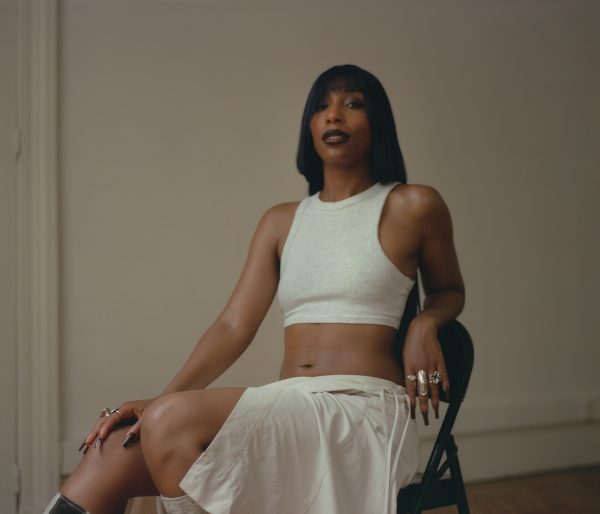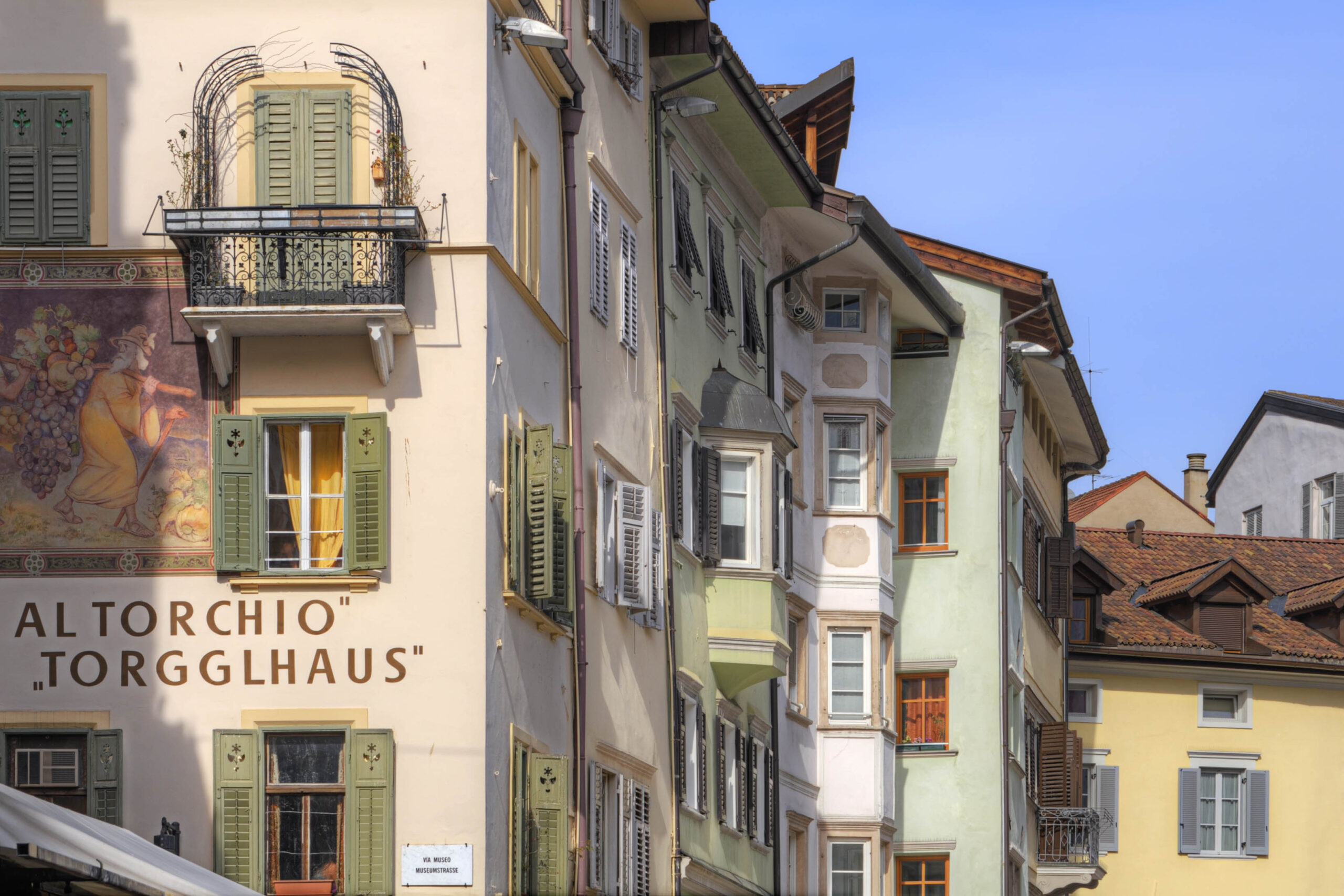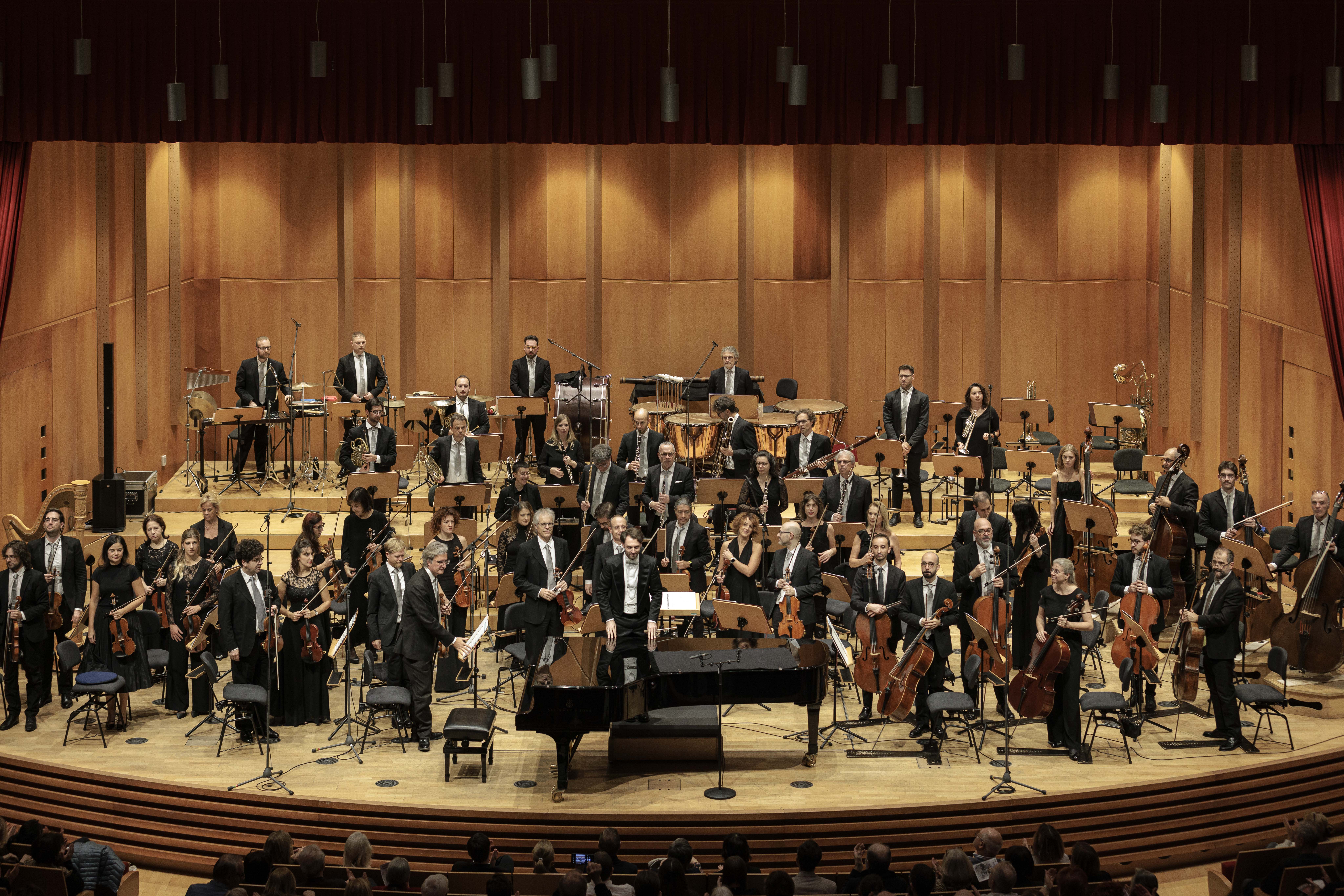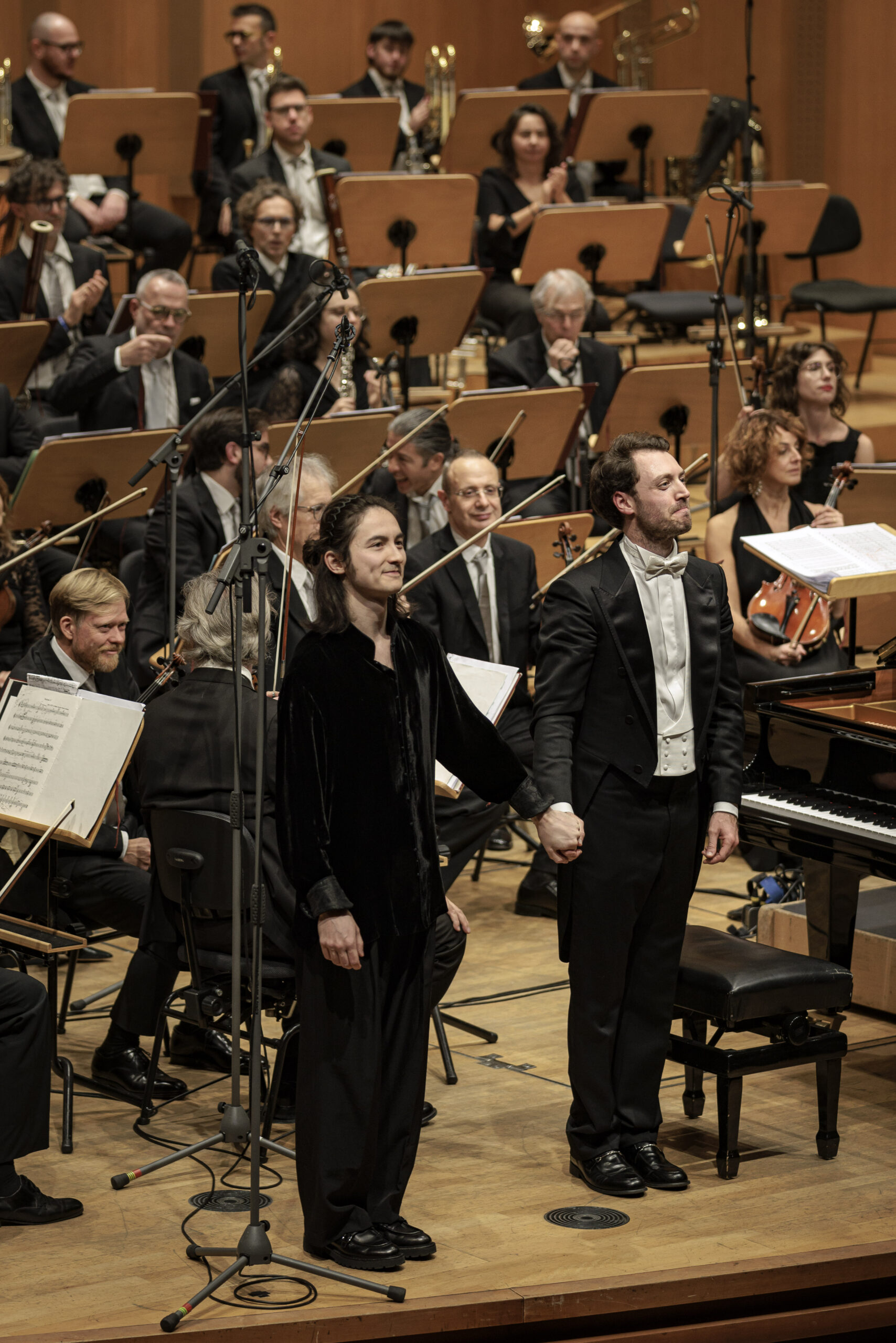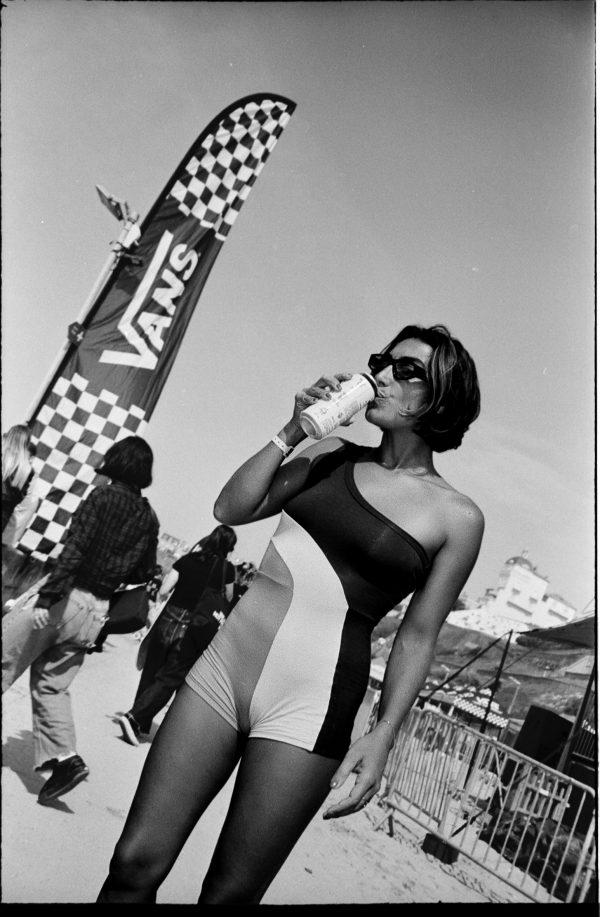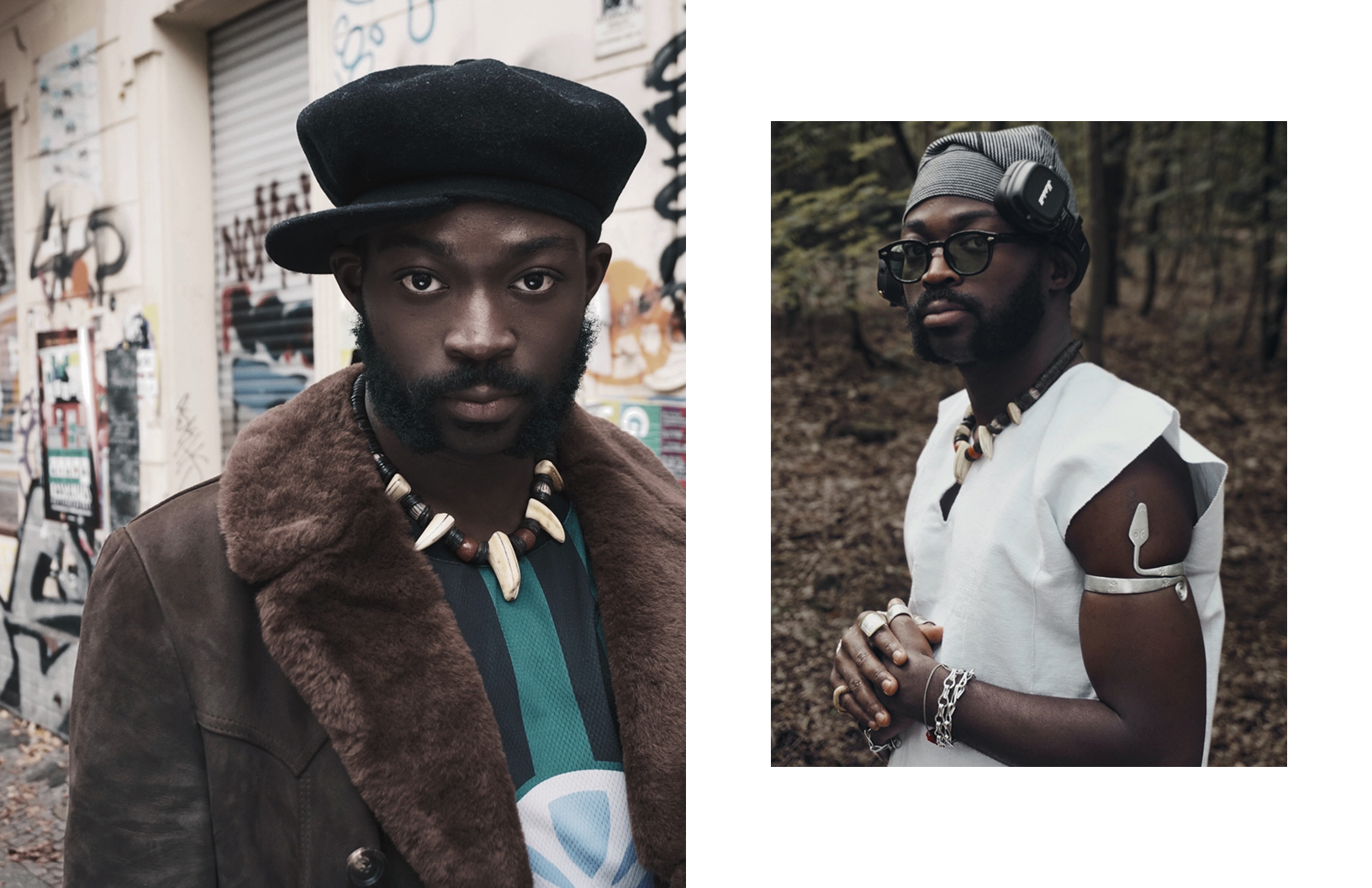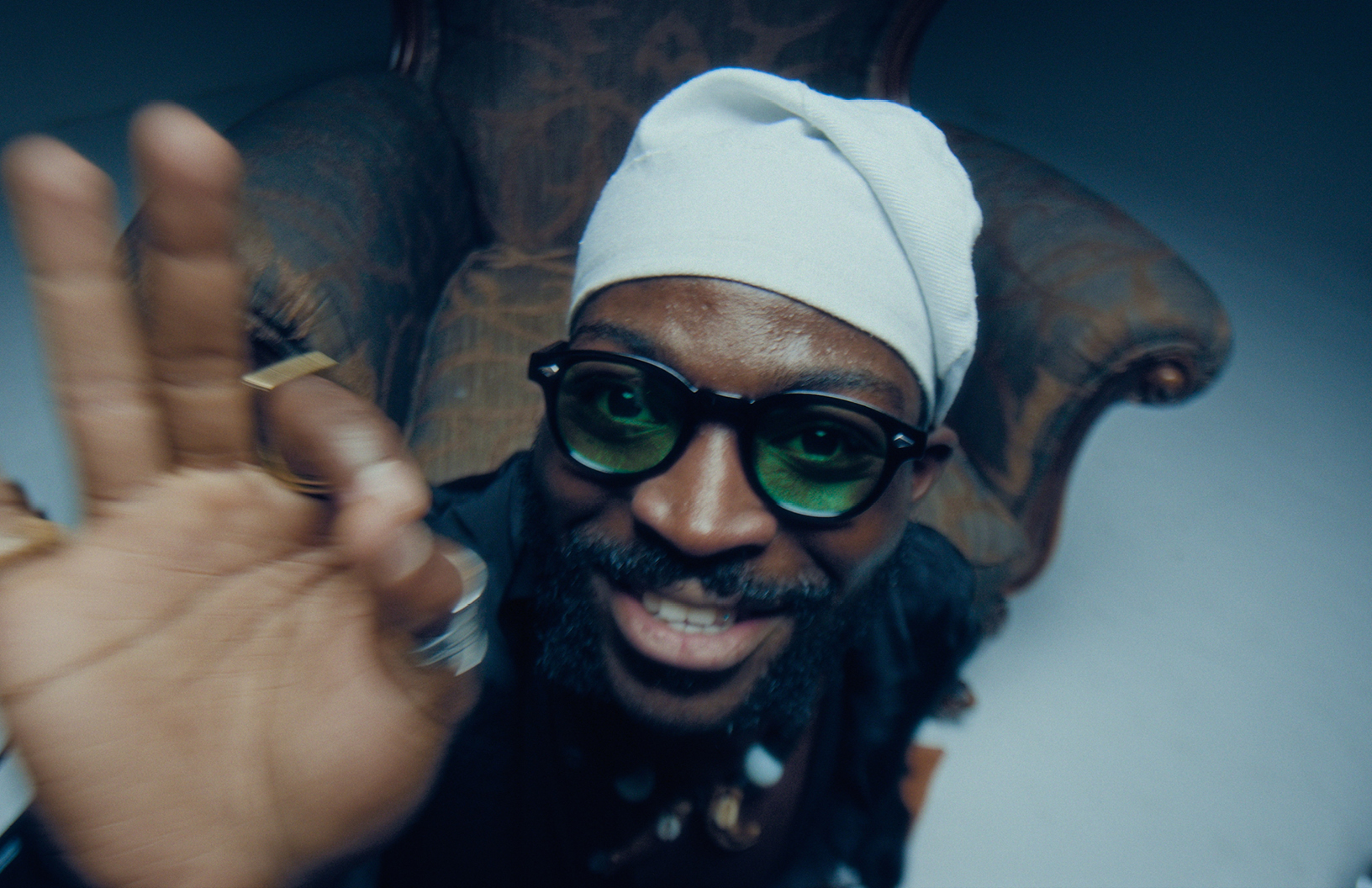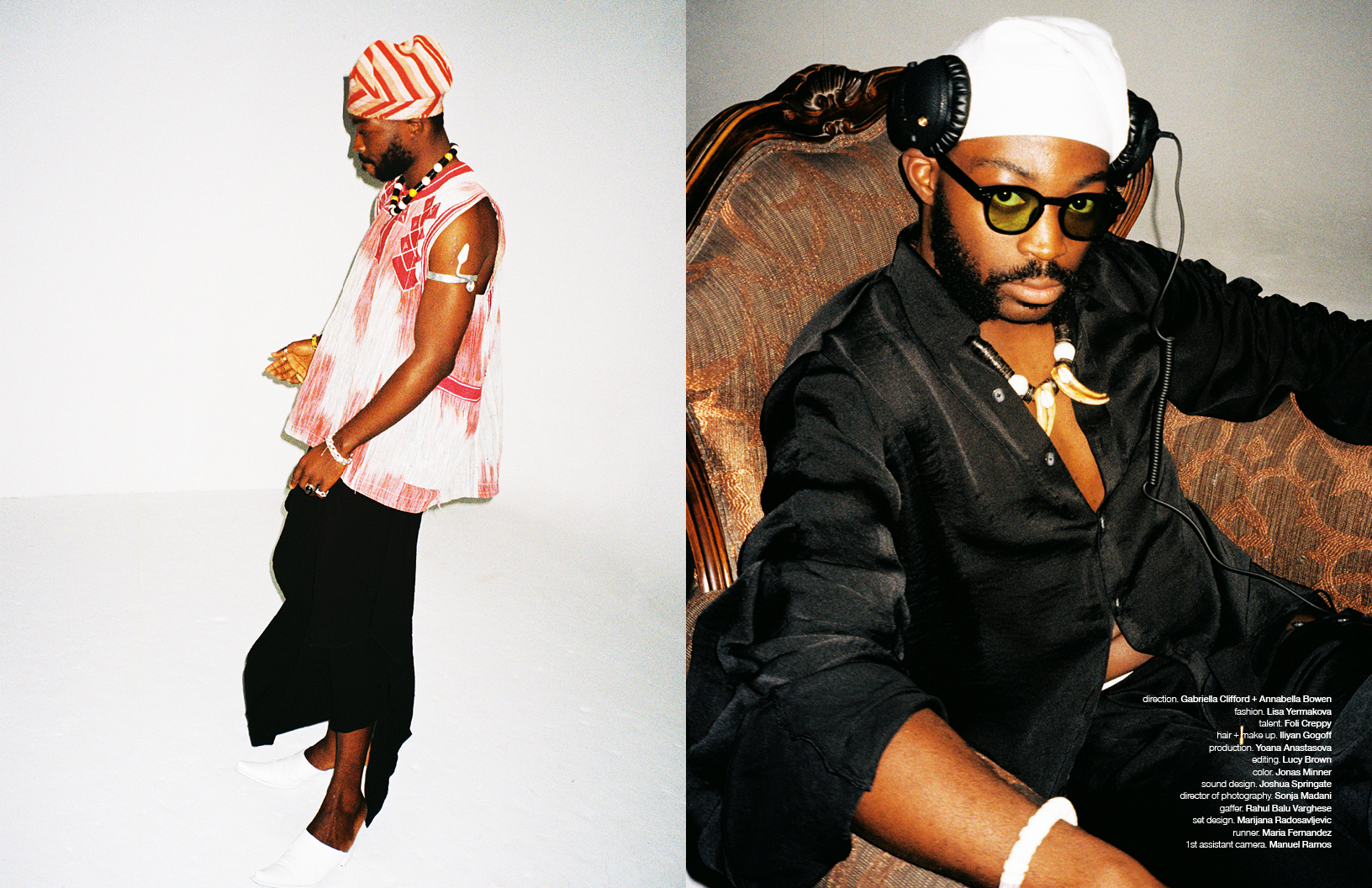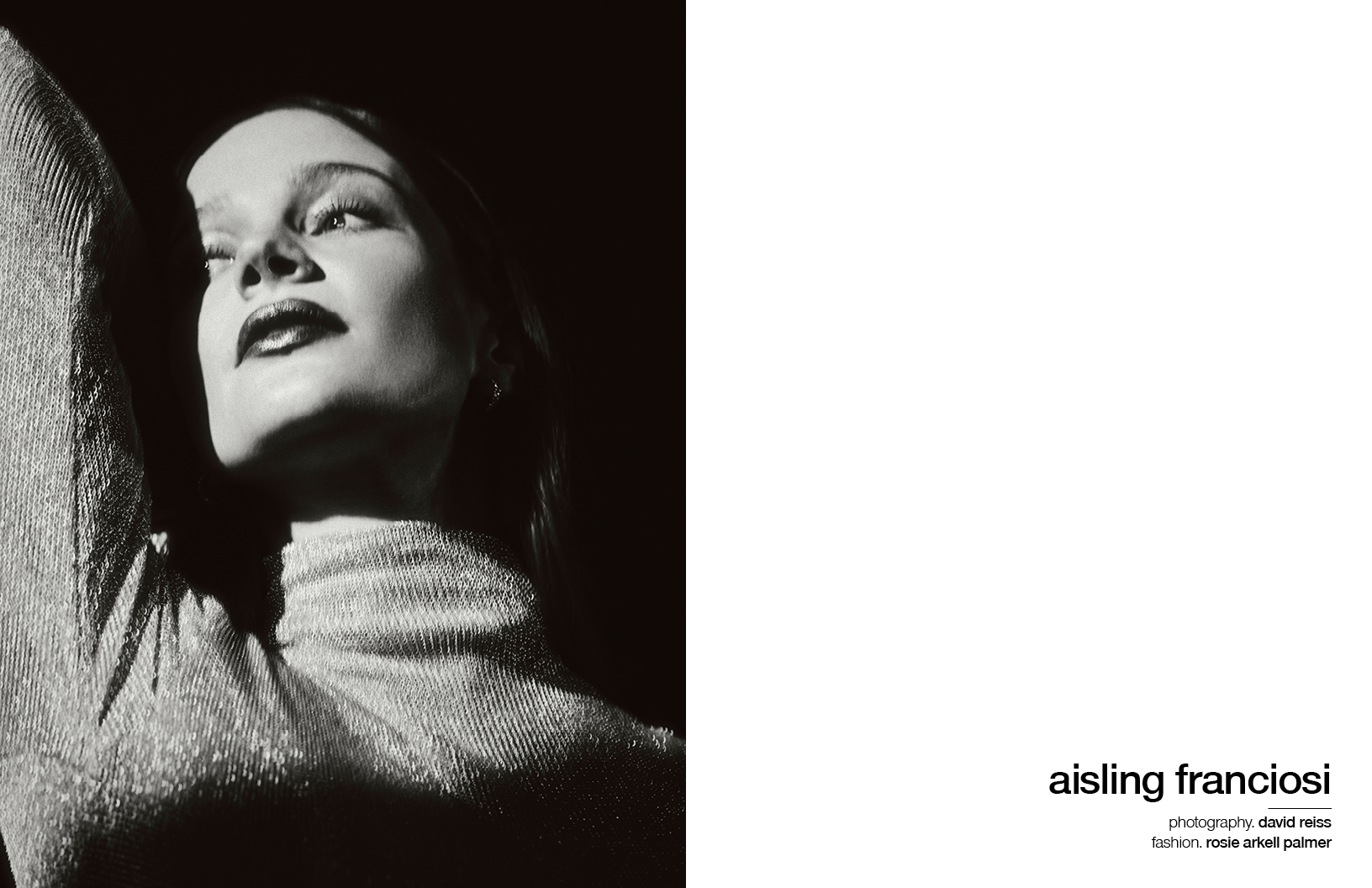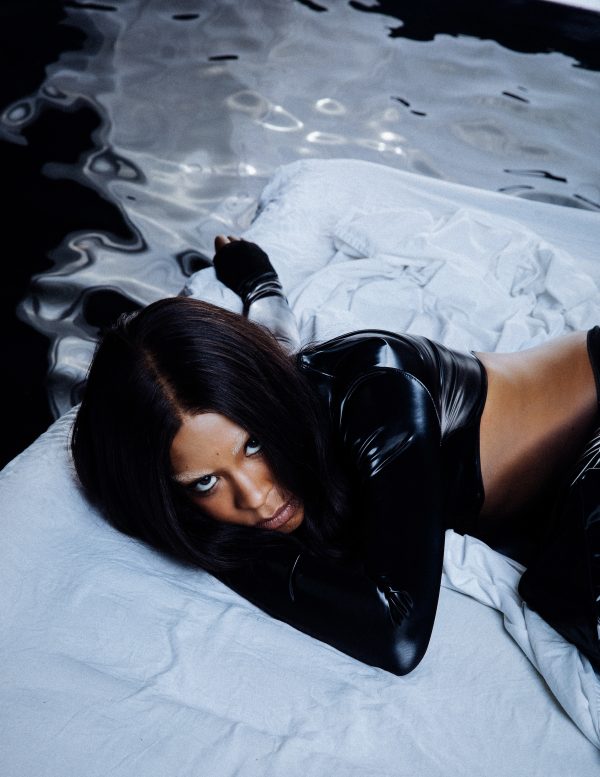
Aitch in conversation with Dotty credit Ailish O Leary Austin
Manchester has long been synonymous with music, boasting a rich legacy of artists and venues contributing to its unique cultural fabric. The city teems with musicians, grassroots venues flourish, and new spots pop up regularly. There’s a thirst for every genre in every pocket of the city and Beyond The Music wants to shine a light on the collectives thriving in the North.
Beyond The Music, one of the nation’s premier music conferences and festivals, wrapped up its second consecutive year. Founded by Oli Wilson—son of legendary Factory Records impresario Tony Wilson—with Sarah Pearson and Rose Marley, the event aims to zero in on critical issues affecting the music industry while simultaneously platforming local emerging talent through 100s of gigs happening throughout the city at independent venues.
Everyone from government officials to local uni students came together at Aviva Studios to discuss everything from misogyny in music, musician’s mental health, gaming, AI and beyond. What set the stage for the festival was a moving keynote conversation between Manchester rapper Aitch and Apple Music host Dotty where Aitch discussed the issue with the UK music scene’s fixation on London. “No one is having label meetings here,” he says when discussing the difference between the North and South. “When you come from here, the goal is to get to London. […] If you grew up here, you want to smash London and show that lot what’s what.”
When reminiscing, many think of Manchester’s music scene being something of the past (think: The Smiths, The Hollies, Oasis, and beyond). What was apparent over the festival was how people like Manchester Mayor Andy Burnham are dedicated to looking to the future rather than the past. In his short but powerful speech, he declared how the music industry needs a systemic and that starts with them. Towards the end of his speech at Aviva Studios, Burnham emphasized the need for initiatives to recognize working-class talent, stating, “We know in our heart of hearts we have to fix this. We cannot in the future just think that working-class talent will find its way.” Burnham also pledged to leverage his position to offer substantial support, adding, “As Mayor, I will lead from the front and support you all the way if you’re prepared to do that with us as an industry.”

photo by Anna-Marsden
One of the most poignant panels at the conference was “Misogyny in Music,” a conversation between Dr Diljeet Bhachu, Zelda Perkins, Jen Smith, Ni Maxine, and Frances Barber Shilitto. In response to the findings that uncovered the deeply rooted misogynistic culture within the music industry, BTM gave space to bring together experts to discuss ways to create a more inclusive and respectful music industry. In response to people turning away from the recommendations from the aforementioned report, Perkins highlighted that it isn’t just “the perpetrator, it’s the systems around the perpetrator.” Perkins emphasized the need to educate women about NDAs and the rights they may be unknowingly forfeiting when they sign them.
Following the disastrous Oasis sale for the U.K. dates (and for Taylor Swift fans across the pond), ticket touting has been one of the top issues for fans and music lovers like. In her first public address to the U.K. music industry, Lisa Nandy, the Secretary of State for Culture, Media and Sport, spoke about the issue with the re-sale market — specifically mentioning the Oasis controversy as one they want to work to fix.
One way she wants to help make a change? Growing the grassroots, specifically by amending the existing Community Right To Buy scheme for venues. “We’re going to extend the amount of time that communities have to be able to raise that money,” Nandy said to attendees. “We’re going to make it easier for them to find out who owns the land, who owns the buildings, and take them back into public use. We’re also looking at how we can make sure that there’s funding available to be able to do that. We want to have those incredible live music venues that so many people in this room will remember, will love and feel close to their heart. We want to make sure that that scene can continue to thrive.

photo by Anna-Marsden

photo by Lucy-Craig
BTM talks the talk and walks the walk by not just discussing uplifting smaller acts, but championing them. Over the festival, 200+ acts played across venues in the historic Northern Quarter. Unlike London where the nightlife has been dwindling, the city of Manchester felt truly electric throughout the festival — restaurants, bars, venues, and the streets were busy with people ready to celebrate music. And with over 200 acts to see, it was difficult not to find an artist you’d discover and fall in love with. Some of Schön!’s favourite finds was the indie rock quartet West Side Cowboyy, the expressive Blossom Caldarone, the punchy Manchester-based Better Joy, Hull’s very own Chiedu Oraka, five-piece genre-defying Martial Arts, and Oregon-born R&B singer-songwriter Nyah Grace.
Although some hybrid music conferences & festivals focus on the big names to nab attendees, BTM clearly prides itself on celebrating homegrown talent and their future — the undercurrent of the entire festival. With only in its second year, the excitement for both Beyond The Music as an initiative and the music industry they are trying to redefine is palpable.
Learn more about Beyond The Music at beyondthemusic.co.uk.




















